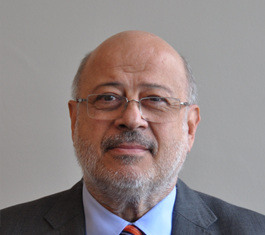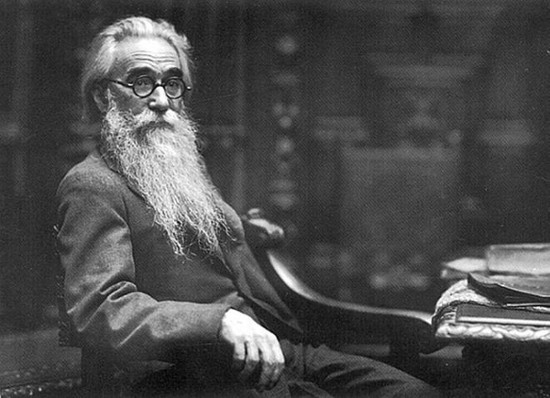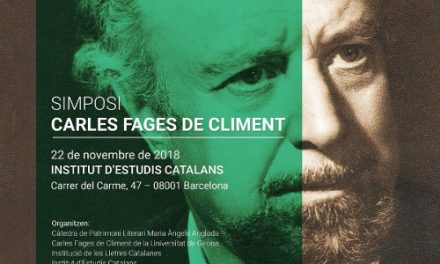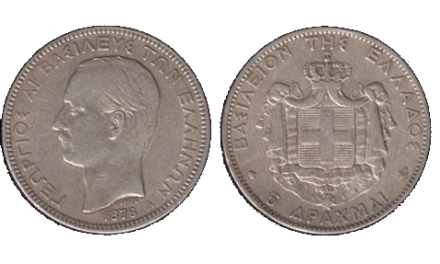
Dr. Xabier Añoveros Trias de Bes
Xabier Añoveros, full academician and vice-president of the Governing Board of the Royal European Academy of Doctors-Barcelona 1914 (RAED), gave the conference “Valle-Inclán: ‘Divinas Palabras’, el inicio del esperpento” (Valle-Inclán: ‘Divinas Palabras’, the beginning of the grotesque) last 10 November at the Galician Cultural Center Saudade at Barcelona, where he related the biography of the renowned Galician author, his irruption in Spanish literature and the creation of a new kind of grotesque deformation of reality developed later in his work “Luces de Bohemia”.
The academician stopped at the writer’s return to Pontevedra after his first trip to Mexico in May 1893. It was at this time that he began to cultivate his particular clothing: a Mexican poncho that was later changed into a cape, scarf, and a wide-brimmed hat, white booties, a long mane and his famous “goatee beards” that his friend Rubén Darío speaks about in a poem.
 Thus, Valle-Inclán created his own image, extravagant and singular. His strange appearance was at the same time a way to distinguish himself from others and a confrontation with the ruling class. In front of the gallery he created a bohemian, shrill and non-conformist character.
Thus, Valle-Inclán created his own image, extravagant and singular. His strange appearance was at the same time a way to distinguish himself from others and a confrontation with the ruling class. In front of the gallery he created a bohemian, shrill and non-conformist character.
“The apparent lesson of ‘Divinas Palabras’ is that it uncovers, without idyllic embellishments, a miserable, sinful and miraculous rural Galicia, whose individuals, despite their deeply rooted religious beliefs, don’t pay attention to what the official religion commands them, more than when they are spoken in a language, Latin, incomprehensible to them, but which represents the truth of the mass and religion in which they believe blindly. In this work merge the cruelty, present in all its text, with the mercy that presides over the end”, explained Añoveros.
For the academician, Valle-Inclán is situated with this work at the height of Federico García Lorca. “The theatre of the first third of the 20th century is a theatre in crisis, very based on the merchant and the ease of pleasing the public. Valle-Inclán and García Lorca propose a different theatre, a ground-breaking theatre, with great strength, completely renovated, with all logic, is the only one of his time that has passed into the history of universal literature”, he concludes.




